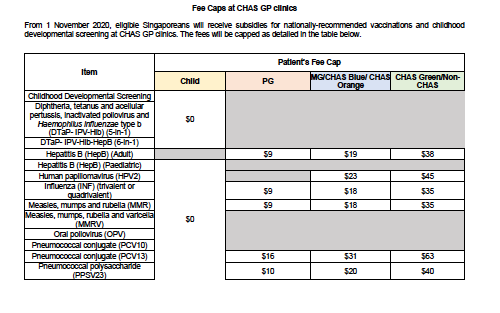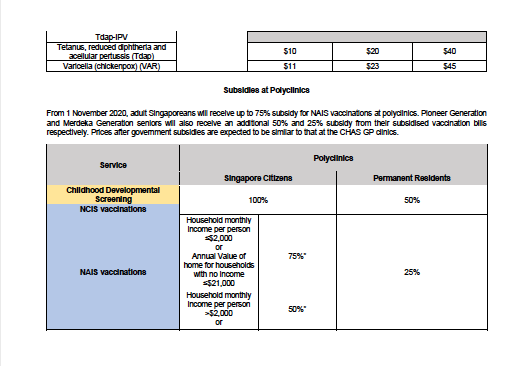Get protected against pneumonia
Pneumonia is the second leading cause of death in Singapore and it can be prevented by getting vaccinated.
 Pneumonia is a serious inflammatory condition of the lungs. It represents a significant healthcare issue in Singapore, and is a common cause of hospitalisation and a leading cause of death.
Pneumonia is a serious inflammatory condition of the lungs. It represents a significant healthcare issue in Singapore, and is a common cause of hospitalisation and a leading cause of death.
Ageless Online speaks to Dr Leong Hoe Nam, infectious specialist, Rophi Clinic, Mount Elizabeth Novena Specialist Centre to find out more about pneumonia and how we can protect ourselves from it:
Can you share what pneumococcal disease is in layman’s terms and its link to pneumonia, and what happens if one gets it?
Pneumococcal comes from two words – streptococcal pneumonia. Streptococcal describes the bacteria – Streptococcus pneumoniae. It causes multiple sites of infection with pneumonia as the most common. It causes brain infection, bloodstream infection (or blood poisoning), but pneumonia is the most common manifestation.
Pneumonia, being a lung infection, is a common infection especially in the elderly. You may have even heard of the great physician called Osler. He described pneumonia as the old man’s best friend. It accompanies the old man to the deathbed because it takes his life from him. Pneumonia is the second leading cause of death in Singapore – second only to cancer. And often, it is the terminal event in many chronic illnesses, e.g. ischaemic heart disease, diabetes mellitus, and chronic renal failure.
Pneumonia happens:
- because of bacteria directly infecting (e.g. pneumococcus, which is another term for streptococcus pneumoniae) or because of a preceding viral infection. The classic example is influenza strikes the individual often an elderly, and pneumococcus infects next (there is synergistic risk of pneumococcus infection when a virus infects first followed by bacteria).
- or because of a mechanical reason. The person can’t swallow well after a stroke or he is mentally obtunded. Spit drools into the lungs. The organism is usually not pneumococcus.
- or he has an immune defect causing this predisposition e.g. congenital or acquired lack of spleen.
- or he is on chemotherapy.
In the latter two groups, the bacteria is often lurking at the back of a throat and all you need is an opportunity for the bacteria to fall into the lungs.
Why should those over the age of 65 be concerned? Is it particularly those with chronic medical illnesses or weakened immune systems that should be more concerned?
As you grow older, your immune system fails. This is immunosenescence. A natural phenomenon in growing old or I would rather call it getting wiser. The immune system, through a system of mechanisms, becomes older and weaker. Infections occur either through a preceding viral infection e.g. influenza, followed by bacteria infection, or simply pneumonia happening on its own.
Those with chronic medical illnesses, e.g. diabetes mellitus, chronic renal failure, and heart failure (from ischaemic heart disease or other causes) are deemed “immunocompromised”. This is especially true if your medical condition is not well-controlled. So, for those who have these conditions, the least you can do is to control them. Hence, they should be more concerned. The focus is to improve the underlying medical condition, exercise to improve the lung function, and vaccinations. As you realise, vaccinations of viral and bacterial infections are both equally important. I would vaccinate for influenza and pneumococcus.
What are the signs and symptoms?
Fever, cough, shortness of breath and chest pain. In the elderly, their weakened immune response may not even allow the body to mount a fever response. The individual may simply respond with progressive fatigue, lack of energy, loss of appetite and sleepiness. These may just be the manifestation of pneumonia in the elderly.
How is pneumococcal disease diagnosed?
Let’s be specific. To diagnose pneumonia, we need clinical symptoms and signs of pneumonia. An abnormal chest X-ray is helpful. An X-ray was not available decades ago, and the diagnosis would have been purely clinical. Pneumococcal refers to a specific germ streptococcus pneumoniae. You would need to culture the organism from the sputum or blood or identify the pneumococcal bacterial antigen in the urine, to make a specific diagnosis.
If you have pneumonia caused by pneumococcus, you can thus call it pneumococcal pneumonia.
What are the treatments? What about probiotics?
The mainstay is antibiotics. This is to reduce the bacterial burden of the illness.
Probiotics have no role in the treatment of pneumonia. The role of probiotics has not been defined clearly in science. It makes logical sense to replenish the good bacteria in the human system, but there is little evidence that it makes a significant difference.
Other drugs like a phlegm thinner may help loosen the phlegm to allow the person to cough it out. Physiotherapy is used to help clear out the phlegm, and oxygen is used to supplement breathing. The patient may develop dyspnoea (shortness of breath) with deteriorating lung function from worsening pneumonia.
Individuals who fall sick with pneumonia have a stepwise decline in physical function. With time, they recover, but many do not recover back to their premorbid situation. In other words, each hospitalisation or serious illness, makes them more prone to the next infection. Infection begets infection. Hence it is important to prevent that first infection.
What is the prevalence of pneumococcal disease in Singapore?
We estimate that pneumococcal disease occurs in about 30 to 50 percent of all pneumonia in Singapore. The true prevalence is hard to determine.
- A lot of pneumonia would have had antibiotics at the GP or hospitalisation prior to culture, rendering culture ineffective in getting the organism.
- Only the patients with serious pneumonia would have a positive blood culture.
- Using urinary testing is an expensive proposition that would make little difference in the final treatment plans. It is more of an academic exercise, but yet an important exercise in those with serious illness.
To prevent pneumococcal disease, the advice is to get vaccinated. What are the types of vaccines available in Singapore?
Two types of vaccines are available:
- Pneumococcal Conjugate Vaccine (PCV13) also called Prevnar.
- Pneumococcal Polysaccharide Vaccine (PPSV23) also called Pneumovax.
The names and numbers belie the true value and meaning of the vaccine. PPSV23 is a polysaccharide vaccine. It covers 23 valents. But because it is polysaccharide, it induces immune response less effectively.
PCV13 is the newer generation of vaccines. It is more efficacious because it is conjugated with an adjuvant. An adjuvant stimulates the immune response better. But it only covers 13 valents i.e. fewer serotypes of the bacteria. For maximum benefit, we should have both PCV13 and PPSV23.
How many shots should someone 65 and over take? Why do you think seniors are not getting vaccinated?
Two shots – take the PCV13 first followed by the PPSV23 at two to 12 months later. This sequence is important. By changing the sequence, you may blunt the effect of the PPSV23 that is given first.
Seniors are not used to adult vaccinations. Those aged 65 years and above may have never had any vaccinations in the past. Even their all-important MMR (measles, mumps and rubella) or polio vaccine may not have existed then and so the concept of adult immunisation is rather fresh and unheard of. Many adults do not admit that they may be prone to infections which did not affect them when they were much younger.
Who should not be taking the vaccination?
Practically everyone should have the vaccination. Exceptions are those with known allergies to the vaccine or its products. This however is extremely uncommon.
What common side effects are there from the vaccines?
Pain and redness at the site of the infection are not uncommon. It is uncommon to find individuals with fever beyond 37.5 degrees Celsius.
What advice would you give caregivers who have a loved one who had pneumonia and are back home? How should they best care for them?
If you have a loved one, give them a gift of love, a gift of the vaccine. Vaccinate against influenza and pneumococcus (both PCV13 and PPSV23) for maximum benefit. I would treasure them by helping them maintain their health with vaccination. Prevention is better than treatment. Treating their infection has no assurance of recovery back to their former glory. Once lost, it is forever gone.
SIDEBOX: What is the costing?


(** PHOTO CREDIT: Pixabay/Anastasia Gepp)

0 Comments